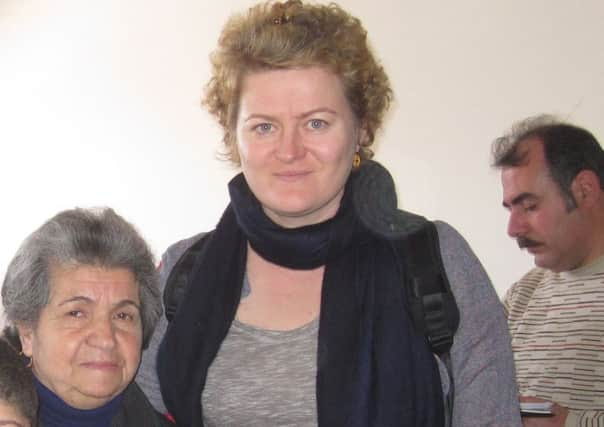Can a solution be found to the humanitarian crisis in Syria?


KATE Newton was born in the tranquil and verdant surroundings of Wharfedale.
It’s a far cry from some of the rubble-strewn war zones and scenes of desolation that the former Bradford Grammar School pupil’s humanitarian work has taken her to.
Advertisement
Hide AdAdvertisement
Hide AdAn Oxford University graduate, she spent 14 years working for the United Nation’s World Food Programme, going on to become its deputy country director in Syria.
Since 2013 she’s worked as a Humanitarian Adviser on Syria for the Department for International Development (Dfid) and having lived and worked for a time in the Syrian capital Damascus, has seen the country’s inexorable slide into a prolonged and brutal conflict.
The vexed issue of Syria and what to do about the human tide of refugees streaming out of the war-ravaged country has grabbed the news headlines over the past 12 months, especially in the wake of the flood of people crossing into Europe in search of a new life.
It has focused the attention of world leaders on trying to find a solution to a crisis that has become increasingly complex.
Advertisement
Hide AdAdvertisement
Hide AdThis week the UN invited Syria’s government and opposition to peace talks in Geneva on Friday in a bid to try and broker some kind of peace deal. It precedes a conference, co-hosted by the UK, Germany, Norway, Kuwait and the UN, that is being held in London next week aimed at highlighting the plight of Syrian refugees both inside and outside the country.
Newton believes the conference will help identify solutions to the longer term needs of the country’s refugees, particularly in terms of jobs and education.
Over the years her work has taken her to countries such as Sudan, Kenya, Ethiopia and Afghanistan, but of all the humanitarian disasters she has encountered the one in Syria has been the worst.
She first went there in 2012 and witnessed the country slowly tear itself apart.
Advertisement
Hide AdAdvertisement
Hide Ad“Syria has been the most harrowing because normally in these situations you are trying to help people rebuild their society, but in Syria that was all in place. It was a middle income country with a developed economy and a decent standard of living and I could see this was being destroyed, it was heartbreaking,” she says.
With the country now in ruins and numerous warring factions fighting one another, the spotlight is being increasingly trained on the humanitarian effort.
The UK is the second largest aid donor to Syria, after the United States, and has so far pledged more than £1bn, its biggest ever response to a single humanitarian crisis.
Much of the Government’s focus has been spent on trying to help those Syrian refugees who have remained in the region.
Advertisement
Hide AdAdvertisement
Hide AdNewton left Syria three years ago and during that time her focus has been on helping those who have poured out of the country into neighbouring countries such as Turkey and Lebanon.
“These regional countries are under a lot of strain and people are now looking for longer term solutions and we are trying to provide these in the region,” she says.
But with no end in sight to the bloodshed and violence in Syria and the continued intransigence of the groups involved, does she believe that conferences like the one being held in London next week, can really make a difference to those whose lives have been ripped apart?
“A political solution is necessary to bring the Syrian conflict to an end,” she says. “And while we recognise that we can’t deliver protection to all these people it will hopefully shine a light on the humanitarian situation.”